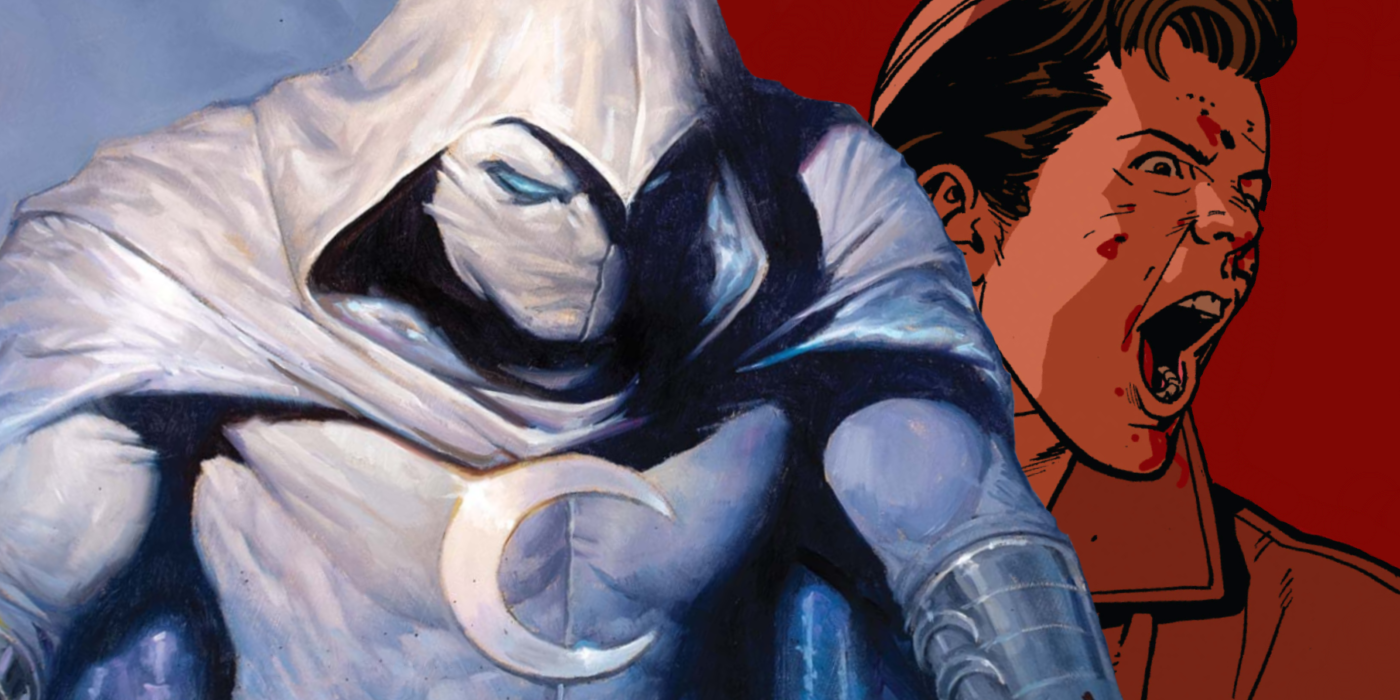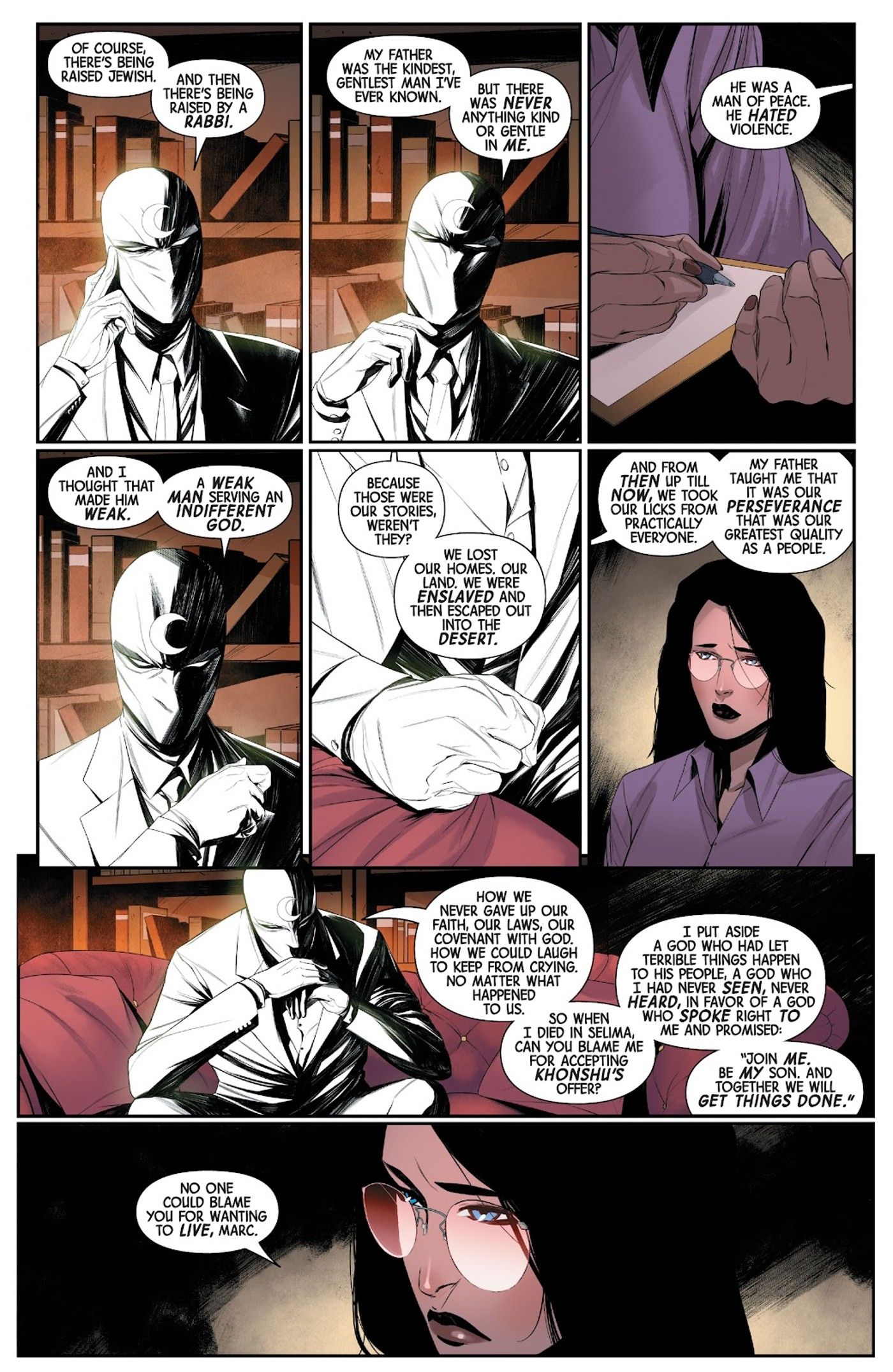Warning: contains spoilers for Moon Knight #5!
Marvel's Moon Knight is one of the few superheroes whose Judaism is an important and recurring plot point. The importance of being Jewish to Marc Spector has waxed and waned over the decades of the character's long history, but in Moon Knight #5, Marc finally opens up regarding his faith, his family and his eventual decision to forsake both and become the Fist of Khonshu - a decision which left him filled with despair, rage and ultimately regret.
Moon Knight's backstory is deceptively simple. The son of Rabbi Elias Spector, Marc was raised in his home city of Chicago. Meanwhile, on a different plain of existence, the Egyptian god Khonshu believes Marc has a weak heart that will make him susceptible to his supernatural influence. Marc eventually becomes a United States Marine, a CIA operative and a mercenary. After being mortally wounded and left for dead, Marc is brought to an Egyptian temple where he is revived as Moon Knight, the Fist of Khonshu.
In a therapy session in Moon Knight #5, from Jed Mackay and Alessandro Cappucio, Moon Knight discusses his relationship with his father and his religion. To Marc, Elias was a kind, gentle soul who practiced nonviolence and believed that strength came from perseverance, not retaliation. But for Marc, this was a weakness and not something to be admired. He distanced himself from a god who, in Marc's words, "...had let terrible things happen to his people" and embraced Khonshu, who Marc viewed as a god of actions and not words. But Marc was filled with regret at using violence, abandoning God and ultimately misunderstanding his father. "When it came down to it, I was the weak one" Marc admits. Sadly, however poignant his confession may appear, the scene plays into a common stereotype.
In much of pop culture, Jewish characters encounter situations where they are subjected to injustice and suffering, and yet never fight back against their oppressor. While this is treated as noble, excessive resort to the cliche (sometimes labelled "the Righteous Jew") risks sending the message that pushing back even in dire situations is inappropriate, and creates stories where Jewish heroes and protagonists have to be saved by non-Jewish characters. Though Marvel comics feature physically powerful Jewish heroes - such as the Fantastic Four's Ben Grimm - and Moon Knight is depicted as particularly violent even for a vigilante, he still thinks of himself as weak for resorting to violence to solve problems. It speaks to this common stereotype that even as Moon Knight seemingly offers another model of Jewish heroism, he's written to consider his Judaism and his role as a superhero at odds in a way that a Christian hero like Captain America doesn't. Marc feels that to be an active agent of justice, he must adopt another god, and even his regret at doing so further emphasizes this trope.
Moon Knight posits that his father was strong for having faith in God instead of defending himself through violence, but these character aspects are presented as opposites when that is not the case in the real world. It is indeed possible to defend oneself against evil and have faith in God - and specifically the Jewish God - at the same time. Moon Knight's violence has long been depicted as excessive for a superhero, but it's possible to write stories where he interrogates his methods without presenting perseverance and action as mutually exclusive, and without having one of the few Jewish superheroes explicitly call out his history of directly combating evil and suffering as antithetical to his Judaism.


